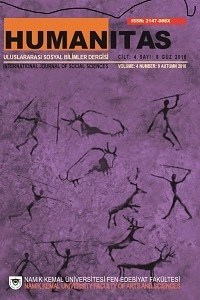MÜZE EĞİTİMİNİN GELİŞİMİ
DEVELOPMENT OF MUSEUM EDUCATION
Author(s): Seher Selin ÖzmenSubject(s): Cultural history, Museology & Heritage Studies, Education and training, History of Education, 18th Century
Published by: Namık Kemal Üniversitesi Fen-Edebiyat Fakültesi
Keywords: Museum Education; Museology; Education;
Summary/Abstract: Museology all over the world begins with the gathering of rare objects by influential people. In the 18th century during the process of institutionalization, the collections were exhibited to an elite class as a show of power and prestige. As a result of the ideas of freedom and equality brought by the French Revolution in the 19th century, the first public exhibition in the Louvre in 1793 took the first step in the field of museum education. From that time it has been developed under the influence of the political, economic, technological, and therefore social transformations that have taken place. During this development process, the professionalization have been accelerated by museology or museum education departments in universities, the literature enriched by the academic studies and the criteria determined by national and international institutions. Today, museum education is based on a critical approach and in this context, the visitor is in focus rather than the collection. Museums are considering different applications for different target audiences. Programs aiming at museum-school cooperation are being prepared for the students as indirect educational support. In addition, interactive applications and accessible collections on the internet can be considered as current options in museum education. The main aim of the museum education is to provide learning through experience by bringing together the objects with the audiences.
Journal: Humanitas - Uluslararası Sosyal Bilimler Dergisi
- Issue Year: 6/2018
- Issue No: 11
- Page Range: 301-324
- Page Count: 24
- Language: Turkish

